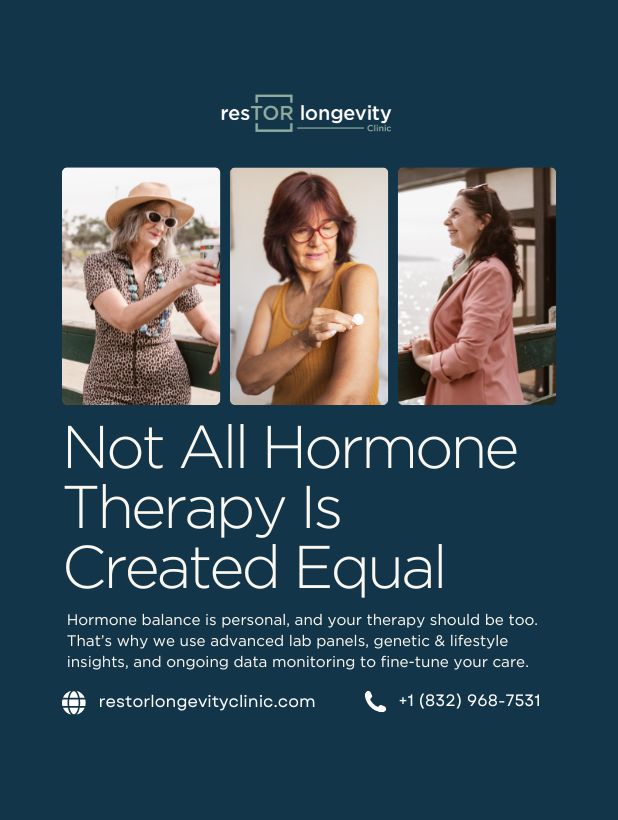Did you know that one number can predict your future health? That number is your VO₂ max—the maximum amount of oxygen your body can utilize during intense exercise. Understanding and improving your VO₂ max can lead to better heart health, increased energy levels, and even a longer life. The insight and actionable strategies you'll find in this post will help you take charge of your health by learning how to measure your VO₂ max, why it matters, and how you can work to enhance it effectively. This guide will provide you with all the essential information you need to understand the importance of knowing your number and protecting your future.
From assessing your current fitness level to actionable tips on boosting your VO₂ max through targeted exercise and nutrition, this post offers a comprehensive view on how to unlock your body's potential for a healthier life.
Understanding VO₂ Max
VO₂ max is a measurement of the maximum volume of oxygen that your body can consume during exercise, expressed in milliliters of oxygen used per minute per kilogram of body weight (ml/kg/min). This critical indicator reflects how well your cardiovascular and respiratory systems function. Essentially, a higher VO₂ max means your body can deliver more oxygen to your muscles during physical activity, which translates to improved stamina and endurance.
The Science Behind VO₂ Max
At the heart of VO₂ max is your body’s ability to transport and utilize oxygen effectively. The process involves the lungs, heart, and muscles working together seamlessly. Here’s how it breaks down:
- Oxygen Intake: As you breathe, your lungs absorb oxygen from the air and transport it to the bloodstream.
- Circulation: The heart pumps oxygen-rich blood to the muscles through a network of arteries.
- Muscle Utilization: Muscles take in the oxygen they require to produce energy through aerobic metabolism.
Why VO₂ Max Matters
- Indicator of Fitness Level: Your VO₂ max is one of the best indicators of cardiovascular fitness. It’s a reliable predictor of an individual’s capacity to perform physical exercise.
- Tool for Health Assessment: Regularly monitoring this number can help you assess and manage age-related health concerns.
- Predictor of Longevity: Numerous studies have shown a strong correlation between VO₂ max levels and longevity. Individuals with higher VO₂ max scores tend to lead longer, healthier lives.
Measuring Your VO₂ Max
There are several methods to measure VO₂ max:
- Laboratory Testing: The most accurate way involves a controlled environment where you're put through various intensities while your oxygen intake is monitored.
- Field Testing: Easier and more practical methods include the Cooper test (running as far as possible in 12 minutes) or the Rockport Walk test (walking a mile as fast as you can).
- Wearable Tech: Many fitness trackers can estimate your VO₂ max using heart rate data during workouts. While not as accurate as lab tests, they provide a good baseline.
Factors Affecting VO₂ Max
Your VO₂ max is influenced by several factors, including:
- Genetics: Some individuals naturally have a higher capacity for oxygen consumption.
- Age: VO₂ max tends to decline with age, starting around the age of 30.
- Gender: On average, men tend to have higher VO₂ max levels than women due to physiological differences, including larger lung capacity and heart size.
- Training Level: Aerobic training significantly impacts VO₂ max. The more conditioned your cardiovascular system is, the higher your VO₂ max will be.
Ways to Improve Your VO₂ Max
Improving your VO₂ max isn't just for elite athletes—it’s beneficial for everyone. Here are actionable steps to enhance your number:
- Engage in Regular Aerobic Exercise: Activities that elevate your heart rate, such as running, swimming, cycling, or even high-intensity interval training (HIIT), are beneficial. Aim for at least 150 minutes of moderate aerobic activity each week.
- Add Interval Training: Short bursts of high-intensity exercise followed by rest or low-intensity periods can significantly improve aerobic capacity. For instance, sprinting for 30 seconds followed by 1-2 minutes of recovery before repeating the cycle.
- Strength Training: Incorporating resistance training a few times a week not only builds muscle but also aids cardiovascular fitness.
- Focus on Consistency: Like any fitness endeavor, regularity is key. Set achievable goals and gradually increase the intensity of your workouts.
- Monitor Your Heart Rate: Using a heart rate monitor can help ensure you're exercising at an intensity that optimally challenges your cardiovascular system.
- Improve Nutrition: A well-balanced diet rich in whole foods, lean proteins, complex carbohydrates, and healthy fats fuels workouts and enhances recovery.
- Stay Hydrated: Dehydration can impair performance. Ensure you're drinking sufficient water before, during, and after physical activity.
- Rest and Recovery: Proper rest is paramount for muscle recovery and overall health. Ensure that you’re getting enough sleep and that your workout schedule includes rest days.
The Connection Between VO₂ Max and Longevity
Research reveals a compelling connection between VO₂ max levels and a reduced risk of chronic diseases. Improved aerobic capacity lowers the likelihood of conditions such as heart disease, diabetes, and obesity. If you can raise your VO₂ max, not only do you enhance your physical performance, but you contribute positively to your overall well-being and longevity.
Real-Life Success Stories
Many individuals have transformed their health by focusing on improving their VO₂ max. Real-life case studies demonstrate how prioritizing cardiovascular fitness can lead to drastic lifestyle changes:
- John’s Journey: A sedentary 50-year-old who struggled with obesity decided to incorporate walking and cycling into his daily routine. Over a year, he increased his VO₂ max by 20% and lost significant weight, significantly reducing his risk for heart disease.
- Mary’s Motivation: After being diagnosed with borderline hypertension, Mary committed to regular fitness classes focusing on aerobic exercise. In just six months, her VO₂ max saw remarkable improvements, reflecting positively on her health check-ups.
Key Takeaways
To sum up:
- Your VO₂ max is a critical number that indicates how effectively your body uses oxygen during intense exercise.
- Monitoring and improving this metric can lead to better cardiovascular health, increased energy, and increased longevity.
- Through regular exercise, proper nutrition, rest, and hydration, almost anyone can enhance their VO₂ max.



